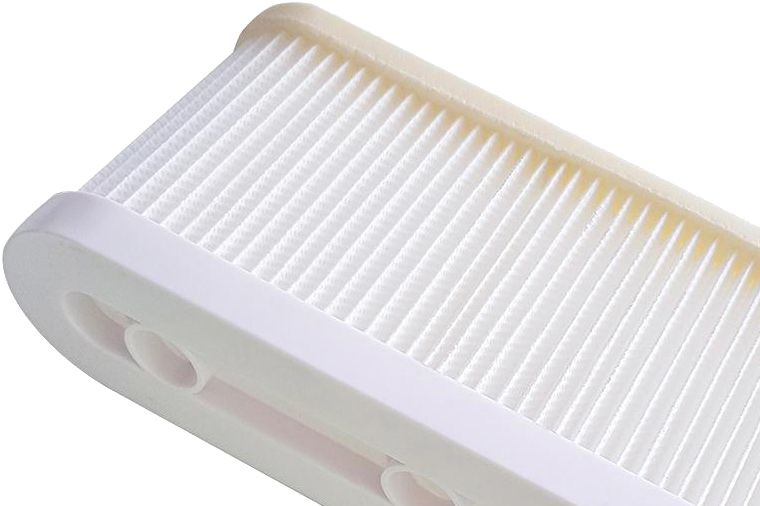In order to ascertain whether HEPA filters can remove coronavirus from the air, we must first determine the sizes that they are able to filter, and the size of this virus itself. The coronavirus is 0.0750.160 microns in diameter. Now, the HEPA filter (in order to be classified as such) must be able to filter 99.97% of particles greater or equal to 0.3 microns.
This means that the coronavirus is smaller than the HEPA filters holes. Now, things get a little more complicated when we consider that it is usually not just a single virus suspended in the air, rather a mass of them in 'aerosol' form. This then means that the actual mass of coronavirus in the air is likely bigger than the given size of just one virus. Strictly speaking, aerosols are defined as particles 5-10 micrometres in size, meaning that they are well withing the HEPA's ability to filter.

The question we now face is, when aerosols of coronavirus are filtered from the air, what happens to them? Where do they go? And most importantly, could they still cause infection?
The truth of the matter is that no one knows for sure at this moment in time, but there is lots of evidence to suggest that HEPA filtration is not going to be effective in our war against Covid-19. Let's start by imagining the filter surface. HEPA filter manufacturers suggest changing the filter of their products every 12-18 months (Dyson, 2020; HoMedics, 2019; Staples, 2020) in order to ensure that they product 'runs optimally'. However, a filter that is run constantly in a busy office will acquire a lot of organic matter and germs in that time and thus need to be changed far more frequently. Realistically, we don't see these filters being changed even nearly this often, which is not surprising given the lengthy process of the 'filter change guide'. A Dyson Airblade often needs to be removed from the wall to have its filter changed as the gap beneath is so close to the floor and therefor might require a qualified electrician and a fair deal of expense. Is it any wonder that they rarely if ever get changed during the entire life of a machine?
The concern is, coronavirus suspended in the air as either droplets or aerosols, contain a lot of moisture. Normally, a larger droplet would quickly settle on the floor and its life cycle would end there. However, when the particle is in a filter for any period of time this water gradually evaporates leaving lots of the tiny coronavirus that is easily small enough to pass back through this filter and into the air once more. This tiny particle is then small enough that gravity will not act on it, allowing it to remain viably suspended in the air for hours.
Eventually, the virus will dry out and die, and this is why we are always told that coronavirus is more dangerous in the winter. The more humid weather will slow the evaporation rate and thus the virus' protective envelope will remain intact for longer. What we don't know is whether that suspended virus particle being pumped out of air filters is infecting people whilst airborne.
A recent paper in Nature quotes aerosol scientist Lidia Morawska from the Queensland University of Technology in Brisbane, Australia saying: "Increasing ventilation indoors and not recirculating air can go some way to ensuring that infectious aerosols are diluted and flushed out" and that "Indoor meetings should be banned just in case". Given that top aerosol scientists are suggesting one, not to recirculate air, and two, that indoor air itself just may not be safe, can we really rely on the HEPA filter to be safely removing coronavirus from the air?
Reference List